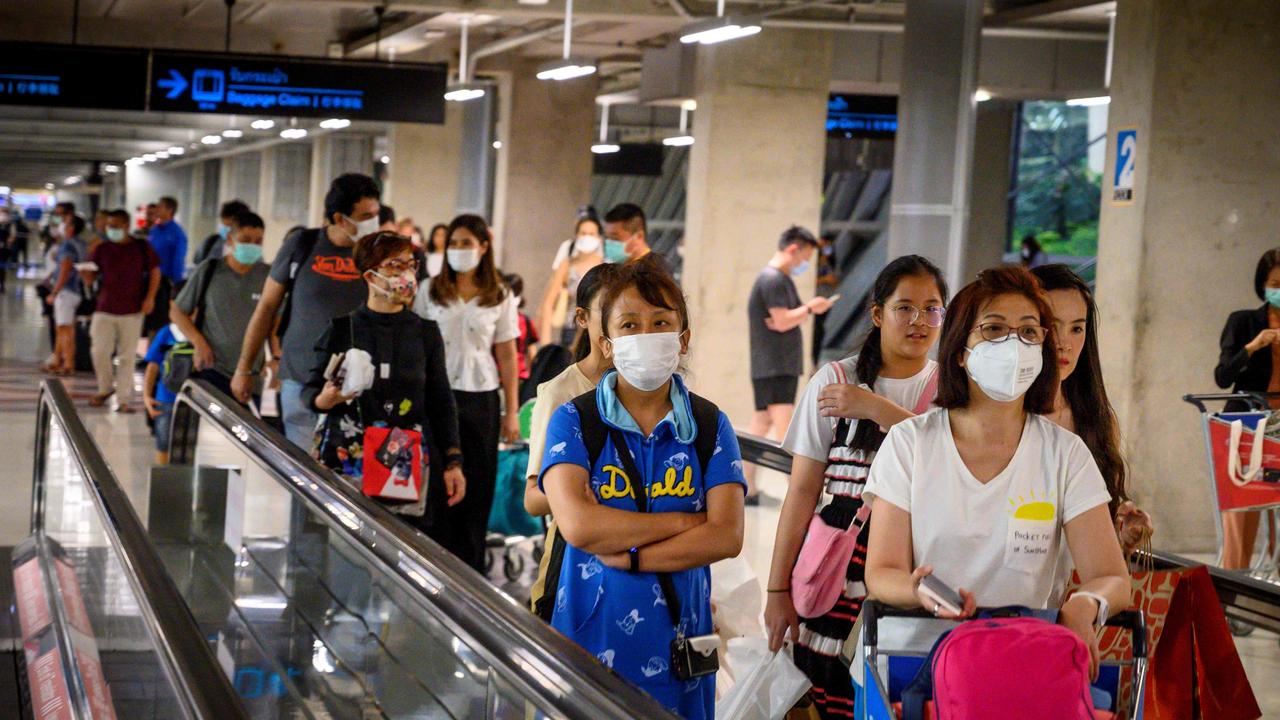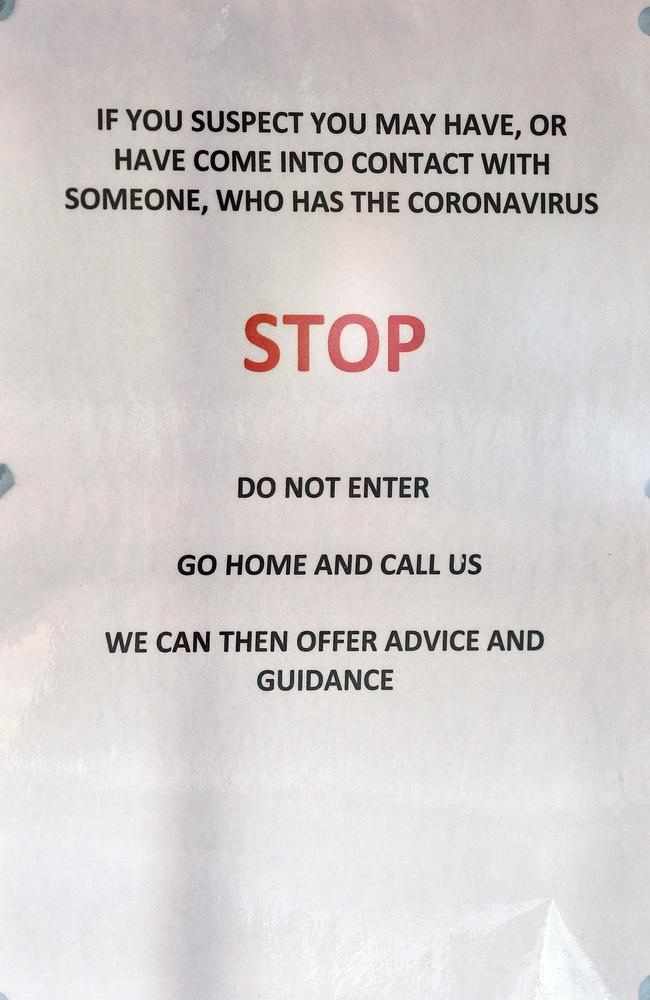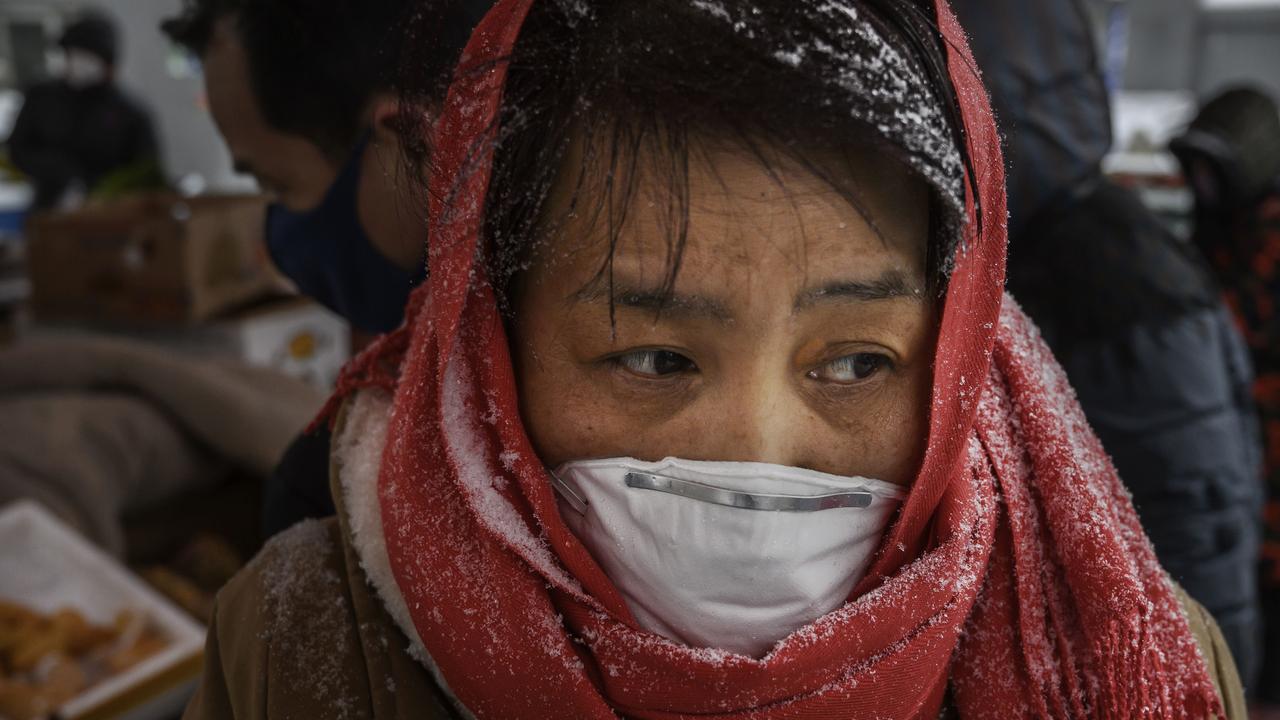Coronavirus infection stokes fears of ‘super-spreaders’
A new pattern of high-risk coronavirus patients infecting large numbers of people is stoking fears of ‘super-spreaders’ among global health officials.
A man who may have spread the coronavirus to almost a dozen people across several countries has stoked fears of a “super-spreader”.
The British national, who is believed to have contracted the virus on a business trip to Singapore, may have spread the virus to up to 11 people as he travelled through Europe before returning to his hometown near Brighton.
BRITISH NATIONAL SPARKS ‘SUPER-SPREADER’ FEARS
The British businessman, one of the first UK nationals to test positive for the virus, works for the gas analysis company Servomex.
He was among 94 delegates – out of a total of 109 – who travelled from abroad.
Among the delegates was a man who flew in from Wuhan, the epicentre of the coronavirus outbreak in China.
British authorities are now scrambling to trace the businessman’s tracks from when he first caught the virus to when he tested positive for it in Britain several days later.
After leaving Singapore, he stopped at French ski resort Les Contamines-Montjoie, boarded a plane, stopped by a pub in his hometown and may have gone to a doctor’s clinic.
RELATED: Follow updates on the coronavirus outbreak

Over the weekend, French health officials announced two new coronavirus cases linked to the ski resort.
“We learned that there were two other cases linked to this cluster, two adults — one who was diagnosed in the United Kingdom and the other who was diagnosed in Mallorca — linked to a stay in the apartment in Les Contamines-Montjoie,” Jerome Salomon, a senior health official, said in a televised statement, Reuters reported.
The following day British authorities said four more people in Britain had tested positive for the virus.
After leaving the French Alps, the British businessman travelled to Geneva, where he caught a plane to London’s Gatwick Airport with nearly 200 other people.
EasyJet, a discount airline, said health authorities have contacted the passengers who were seated near the man.
“Though the risk to others on board the flight is very low, crew who operated the flight have been advised to monitor their health for a 14 day period since the flight in line with Public Health England advice,” the airline said in a statement. “The original flight was 13 days ago and none are displaying any symptoms.”
Four more people were confirmed as having the virus overnight — taking the total number of cases in the UK to eight.
The new cases — three men and a woman — are all known contacts of the businessman who caught the virus in Singapore.
Two medics were among those who caught the disease, as a doctor’s surgery was placed in lockdown.
The County Oak Medical Centre in Brighton, East Sussex, was closed while staff in hazmat suits deep cleaned the surgery.
A sign urging patients to “go home and call us” was posted on its wall.

WHAT IS A ‘SUPER-SPREADER’?
The British national has been identified as a ‘super-spreader’ — that is, someone who spreads the virus at a higher rate than average.
For at least two decades, outbreaks like the coronavirus have had a 20:80 rule, meaning that around a fifth of individuals with the virus will contribute to 80 per cent of its spread.
Experts have no definite answer on how one becomes a ‘super-spreader’, although some speculate those with weaker immune systems may be more vulnerable.
It could also be caused by getting a higher dose of the virus in the first place or being infected by more than one pathogen.
According to Elizabeth McGraw, Professor of Entomology at Pennsylvania State University, the nature of the immune system can see some people cause a wider infection rate than others.
“Highly tolerant people do not feel sick and so may continue about their daily routines, inadvertently infecting more people,” she wrote in The Conversation. “Alternatively, people with weaker immune systems that allow very high amounts of virus replication may be very good at transmitting even if they reduce their contacts with others. Individuals who have more symptoms – for example, coughing or sneezing more – can also be better at spreading the virus to new human hosts.”

She said a person’s behaviours and travel patterns can also contribute to super-spreading. This was likely the case with the British businessman, who travelled to a variety of countries in a short space of time, thus increasing his chances of infecting others.
Super-spreaders can be seen through various disease outbreaks in history.
The most famous is Typhoid Mary, who in the early 20th century reportedly infected 51 people with typhoid through the food she prepared as a cook.
In 1995, two people are thought to have infected 50 others with the Ebola virus in the Democratic Republic of Congo.
In 1998, a student who came down with measles at a school in Finland infected 22 others.
In early 2004, a traveller sick with SARS who was staying in a Hong Kong hotel infected several overseas guests who then returned home and introduced the virus into four other countries.
MORE THAN 1000 FATALITIES FROM DEADLY VIRUS
The deadly coronavirus epidemic is showing no sign of slowing down with the illness killing more than 100 people in a single day.
The number of fatalities from China’s new-coronavirus epidemic jumped to 1016 nationwide today after hard-hit Hubei province reported 103 new deaths. There has also been a death in the Philippines and one in Hong Kong.
In its daily update, Hubei’s health commission also confirmed another 2097 new cases in the central province.
China has been struggling to recover since the outbreak emerged in December with much of the country forced into quarantine.
There are now more than 42,200 confirmed cases across China, based on previously released figures from the government.
The new virus is believed to have emerged last year in a market that sells wild animals in Hubei’s capital Wuhan, the city at the centre of the outbreak.
Chinese President Xi Jinping met with medical workers and patients affected at a hospital in Beijing on Monday, where he called for “more decisive measures” to contain the outbreak, said state broadcaster CCTV.
The outbreak has prompted unprecedented action by the Chinese government, including locking down entire cities in Hubei as well as cutting transport links nationwide, closing tourist attractions and telling hundreds of millions of people to stay indoors.
— with wires



